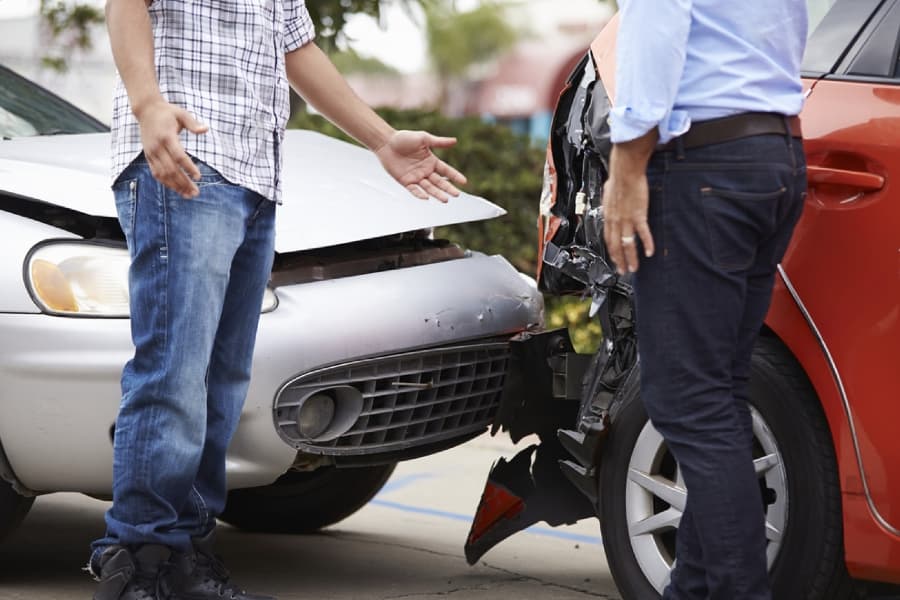In any given year, around 4.8 million people will seek medical treatment for injuries sustained in car accidents. Those involved are usually aware of what drivers in car accidents must do at the scene, such as exchanging contact and insurance information with other drivers, calling for assistance, remaining on-scene, and rendering aid to injured parties when possible.
However, once the chaos subsides, many individuals injured due to someone else’s negligence are unsure of what to do next.
Here are tips about what to do if you’re injured in a car accident that was someone else’s fault.
Learn how a car accident lawyer can benefit your case and the next steps in the process.
The Most Important Actions to Take After Being Injured in a Car Accident Caused by Someone Else
One of the most important actions individuals can take after being injured in car accidents caused by another party’s negligence is seeking prompt medical attention and following their doctor’s orders. This tip is not only a safety consideration—as many severe injuries do not immediately present with concerning symptoms—but also an important legal consideration.
To later seek compensation from the at-fault party for the expenses and impacts of the injury, you must be able to prove when the injury occurred and the type of treatment it required. If you were rendered unconscious after the accident or incapacitated, you likely were automatically provided medical treatment.
However, if your injuries left you the ability to give or deny consent, be sure to consent so that you can begin a paper trail linking your injury to the accident and providing details of your injuries.

Reporting the Accident to Your Insurance Provider
When you get into a car accident, you have to report it to your insurance provider, even if you were not at fault and don't intend to file a claim against your own policy. This requirement is in most auto insurance policies, and failing to let your provider know if an insured vehicle is involved in an accident can result in increased premiums or even cancellation of your insurance policy.
Further, if another party involved in the accident says that you were at fault and files a claim, you could be forced to defend yourself against it if you failed to inform the insurance company before the opposing party files the claim.
Often, car accident injury claimants can obtain early compensation for the expenses of their accident through their own insurance provider, who can later pursue collection of the amount they paid from the at-fault party’s policy. An experienced attorney can explore this and other legal options as you seek compensation.
Contacting an Experienced Car Accident Attorney
Individuals are not required to obtain the assistance of an attorney when they seek compensation for the expenses and impacts of their accident. Many people attempt to navigate the process independently, fearing they cannot afford an attorney’s services.
Individuals injured in car accidents should understand two things about the personal injury claims process:
- The process is complex and often overwhelming to those who haven’t spent years obtaining legal education and experience handling this type of claim. A personal injury attorney works with a team of legal professionals, providing experience and people to share in the burden of gathering evidence and documentation.
- Personal injury attorneys want to ensure that their services are available to everyone, regardless of their client’s ability to pay. They generally work on a contingent fee basis, meaning that clients don’t pay for the lawyer’s work upfront but only if there is a successful resolution. However, if a negotiated settlement or court award results from the claim, the attorney will receive a percentage of the total award as payment.
An experienced car accident attorney and their legal team can provide many services to assist a client with a personal injury claim, such as:
- Determining who caused the accident and the liability insurance available to compensate the claimant. Not every accident features one liable party and one victim. Some accidents result from negligence from multiple parties and can even include parties other than the driver, such as the manufacturer of defective parts used on any vehicle. In some states, including Minnesota, a licensed alcohol vendor or social host can be liable for injuries and property damage from knowingly furnishing alcohol to an underage or visibly intoxicated person who causes a drunk driving accident.
- The claim's value is based on the available insurance coverage held by the at-fault party, the severity of the injury, and the presence of permanent injuries that will impair the victim's ability to earn an income in the future.
- Gathering evidence to prove liability, such as a police report, photos of the accident scene, and testimony from eyewitnesses and expert witnesses.
- Gathering documentation to justify the claim’s value, including medical bills, bills for repair or replacement of the claimant’s vehicle, and employer-provided information about wage loss.
- Managing the claim’s timeline to protect the ability to use the court when seeking compensation by filing the lawsuit within the state’s statute of limitations for that type of claim.
- Managing communication with the at-fault party’s insurance provider to negotiate a settlement and protect the client’s right to maximum compensation by avoiding insurance company tactics to reduce or eliminate payouts on third-party claims.
- Providing litigation services, including preparing evidence exhibits, depositions or examination of witnesses, and delivering opening and closing arguments.
- Assistance in collecting the client’s negotiated settlement or court award. The proceeds of a settlement or award are sent directly to the attorney, who deposits them in a trust. From this trust, the attorney withdraws the agreed-upon amount for payment for their services and satisfies medical liens placed on the compensation by health care providers or health insurers before releasing the remaining amount to the client.
Avoid Discussing the Accident with the At-Fault Party’s Insurance Company or on Social Media
Contrary to popular belief, insurance companies aren’t in the business of compensating victims for injuries caused by their insured. They’re in the business to make money off the premiums their insured pay for those policies.
They do this by hiring a claims adjuster to evaluate the claim and determine how much compensation they owe the claimant.
As previously mentioned, insurance companies and the claims adjusters who work for them have several tactics they use to accomplish this task, such as:
- Telling the claimant that no compensation is available for non-economic damages, such as physical pain, suffering, or emotional distress.
- Telling the claimant that they have to decide on an offered settlement by a certain deadline or lose their right to compensation. The only deadline the claimant is under regarding their claim is the statute of limitations for filing a personal injury lawsuit in civil court.
- Convincing the claimant that a ridiculously low settlement offer, made while the client is still actively recovering from their injuries and have no idea what the totality of their expenses and impacts will be, is the maximum amount of compensation available for them.
- Convincing the claimant to release their entire medical history to the claims adjuster to evaluate the claim. While the adjuster does need to see a limited amount of documentation about the injury, they do not always need to see all of the claimant’s medical records. Generally, they request them to look for pre-existing conditions they can blame for the claimant’s current symptoms. An at-fault party is not liable for pre-existing conditions except for expenses and impacts from worsening (or aggravating) those conditions due to the accident.
- Getting the claimant to make a recorded statement and asking loaded questions that produce answers suggesting that the claimant could be responsible for their injuries.
Additionally, Claims Journal reports insurance investigators regularly search social media platforms to gain information about the claimant. Insurers collect background information such as habits, character, activities, finances, and information that can help them shift liability away from their insured. Insurers can use publicly available posts against the claimant if they give slightly different information about how the accident occurred or the severity of the injuries sustained.
Claimants should avoid posting on social media about their accident, as this can complicate the process of obtaining a fair settlement for the expenses and impacts of the injury.
Be Patient in the Settlement Process
Around 95 percent of all personal injury lawsuits filed in the U.S. settle before going to trial. It is far more likely that your lawyer will resolve your car accident claim through a settlement rather than litigation.
Settlements are often the preferred method of resolving a claim for all parties in the case for reasons such as:
- Litigation is expensive and time-consuming.
- A personal injury lawsuit places the determination of liability and compensation in the hands of a judge or a jury, preventing either a claimant or a defendant from being able to control the outcome.
- Courts are often over-burdened, meaning the claim may take many months to reach trial.
While settlements are common, that doesn’t mean negotiating a fair settlement agreement that compensates you for losses resulting from the accident will be quick or easy. The at-fault party’s insurance provider can offer a settlement at any point between when the claimant submits a demand until the court renders a decision.
Insurance claims adjusters will often offer low and quick settlements before the claimant has had a chance to speak with an attorney about their case in hopes that the claimant—likely in pain and stressed about the financial impacts of the injury—will jump on the offer.
The problem with accepting these quick and low settlements is that if the money does not cover the expenses of the injury, the claimant could be left with out-of-pocket costs and be unable to seek additional compensation.
Another common tactic that insurance companies use during the settlement process is to delay making fair offers as long as possible to push the claim closer to the statute of limitations. They know that if the statute of limitations expires, they will no longer be legally obligated to provide compensation.
Often, fair settlement offers are not made on the claim until filed in court and the insurance provider knows that they either have to take negotiations seriously or face the expense and uncertainty of litigation.

Your experienced car accident attorney is aware of these insurance tactics, how to address them, and that it is hard to wait for needed compensation as expenses are mounting. While you are waiting, your attorney can help you understand how your claim is valued and the type of settlement offer that would constitute fair compensation for the expenses and impacts of your injury.
Want to know more about seeking compensation after a car accident? Contact an experienced personal injury attorney for a free case evaluation. You deserve compensation for injuries caused by another person’s negligence, and a legal team can position you for the greatest chance of success.
